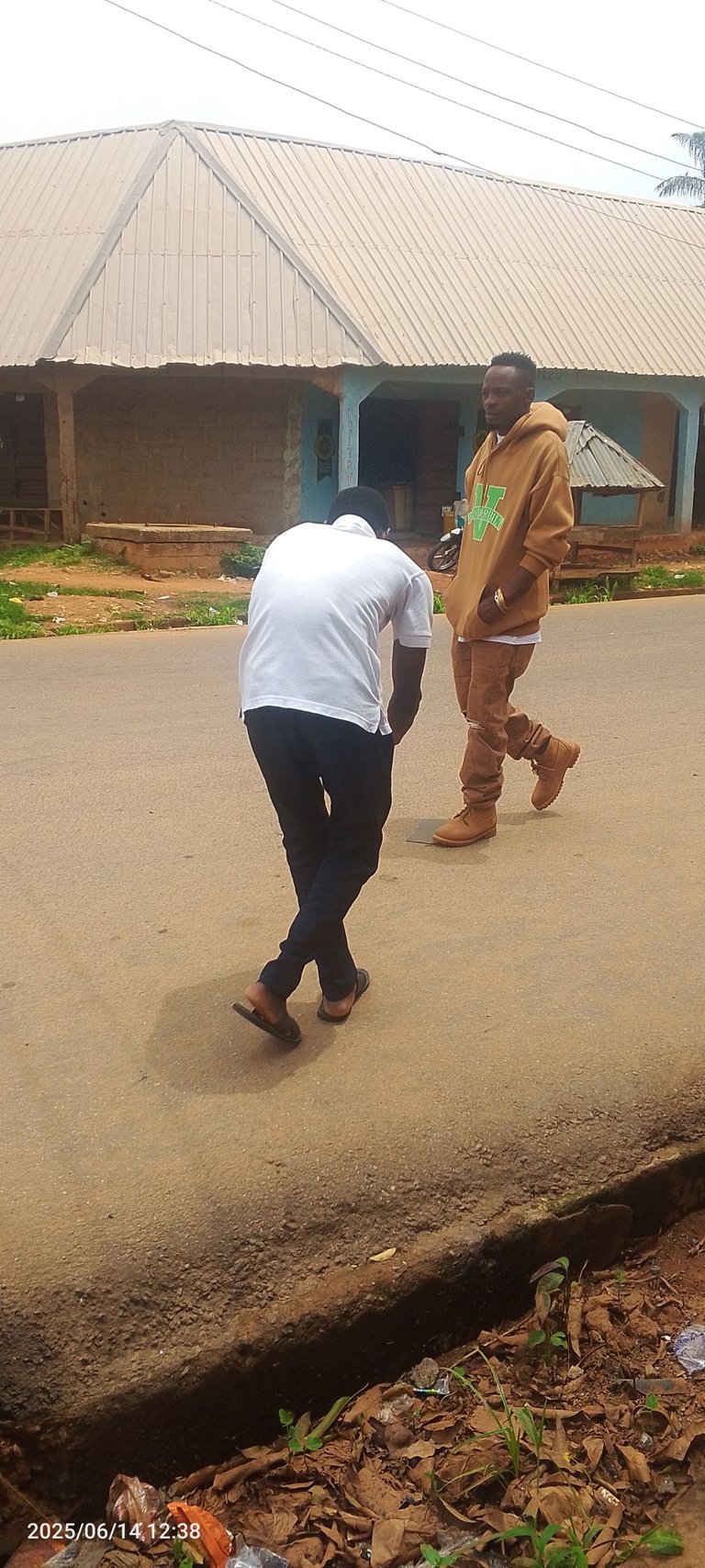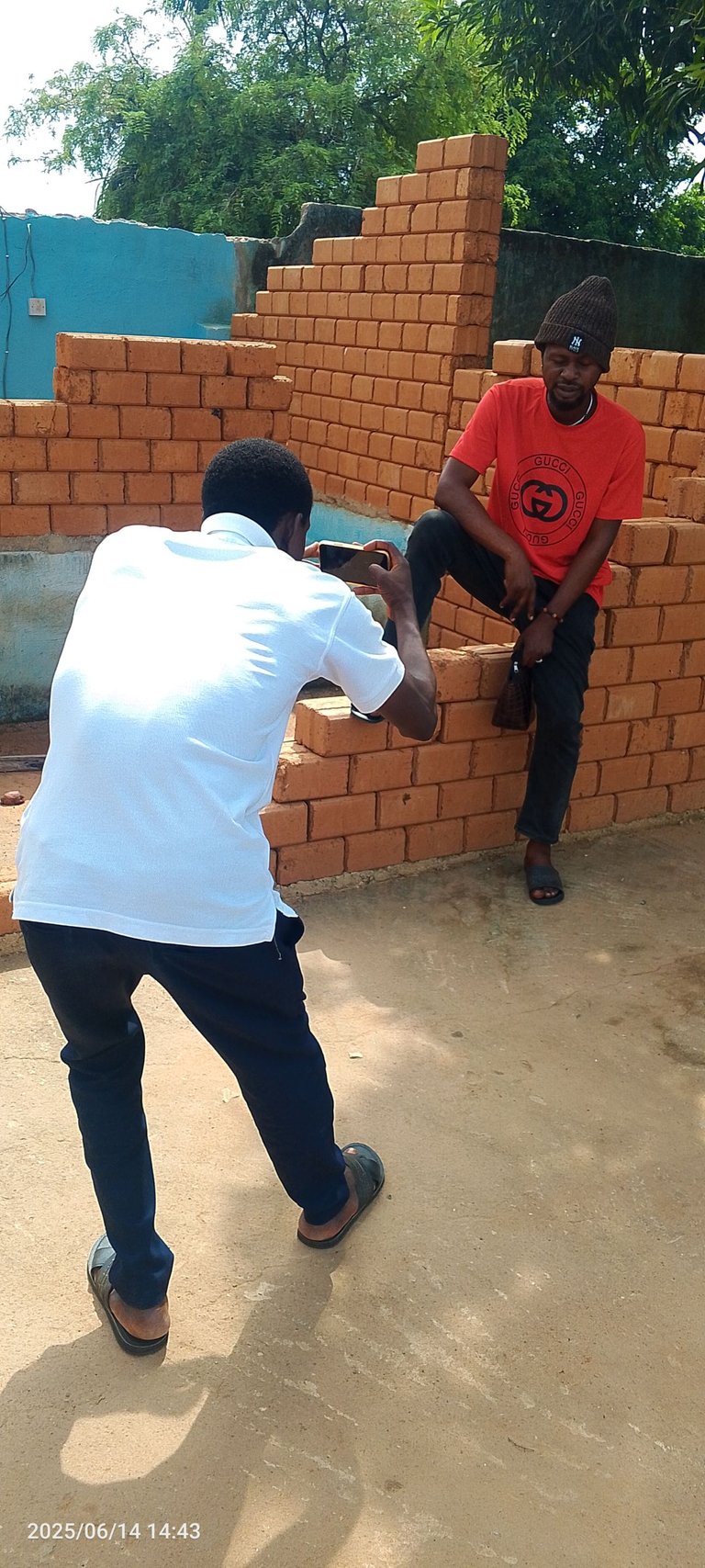Why Shooting Music Videos with an iPhone Is Easier Than Using a Main Camera

In the ever-changing world of music video production, technology has significantly shaped and redefined artists' visual expression. While traditional DSLRs, mirrorless systems, and high-quality film cameras have long been considered the industry standard, this is changing. More and more independent artists, especially in developing countries like Nigeria, are using smartphones, especially iPhones, to create striking images. This is due not only to convenience but also to practicality, cost-effectiveness, and creative flexibility. In this article, we explore why shooting a music video with an iPhone is often easier and more practical than using a traditional main camera, especially in Nigeria, where resources are limited but creativity is unlimited. One of the biggest obstacles in professional music video production is the cost of equipment. Conventional camera setups can be prohibitively expensive. A good DSLR or mirrorless camera body can cost hundreds or thousands of dollars, not including lenses, lighting kits, stabilizers, memory cards, tripods, batteries, or external monitors. However, many people already own an iPhone, and newer models like the iPhone 13, 14, and 15 include high-quality cameras that make 4K video recording easy. In Nigeria, where the average budding artist's budget is limited, iPhones offer a cost-effective solution. There's no need to rent or buy expensive equipment; the phone functions as a camera, monitor, and editing platform. This democratizes the video-making process and gives creators control.

Filming with a main camera requires a lot of equipment, and moving around Nigeria with all that gear can be arduous. From power issues to transportation difficulties, the logistics alone can stifle creativity. Often, you need a crew just to set up lights, attach tripods, operate the stabilizer, or manage camera settings. An iPhone, on the other hand, fits in your pocket. You can film anytime, anywhere—whether on the street, in a moving car, or in a remote location without electricity. This mobility is crucial in Nigeria, where flexibility is often key to overcoming infrastructure constraints. Furthermore, using an iPhone camera is incredibly intuitive. With just a few taps, you can adjust exposure, lock focus, shoot in cinematic mode, or even apply filters in real time. You don't have to be a professional cameraman to get high-quality footage. This simplicity means the artist or a friend can handle the shots themselves, without hiring a professional videographer. Setting up a conventional camera for a shoot is time-consuming. You have to calibrate lenses, balance gimbals, set up lighting, and test audio equipment. Shooting with an iPhone, on the other hand, is almost instantaneous. You pull out your phone, open the camera app, and start recording. You can move between locations or change scenes within minutes. In Nigeria, where you can't always control time and surroundings (for example, a police officer might ask you to vacate a location, or the weather might suddenly change), the ability to shoot quickly and spontaneously is a huge advantage. Shooting with large cameras attracts attention. In cities like Lagos, Port Harcourt, or Abuja, shooting in public with a professional camera can draw unnecessary attention from police officers, neighbors, or curious onlookers. There are several reported cases of content creators being harassed or asked to pay fees before being allowed to film in certain locations. With an iPhone, you can record discreetly. Most people won't even realize you're shooting a professional music video.

This low profile not only increases safety but also allows for more natural shots, especially when filming in public spaces or crowded areas. Today's iPhones are equipped with camera technology that rivals some professional systems. With multiple lenses (wide, ultra-wide, telephoto), image stabilization, Cinematic Mode (which simulates depth of field), and support for 4K video at 60 frames per second, the iPhone has more than enough power to produce sharp, cinematic footage. Additionally, third-party apps like FiLMiC Pro give iPhone users full manual control over focus, ISO, frame rate, white balance, and more, just like with a DSLR. Combined with post-production color correction, it's entirely possible to make a music video shot on an iPhone look like something from a big-budget production. Another big advantage of shooting on an iPhone is the ability to edit your footage directly on the device. Apps like iMovie, LumaFusion, CapCut, and even Adobe Premiere Rush let you trim clips, add transitions, sync music, color correct, and export finished videos—all from your phone. This workflow eliminates the need for laptops, external hard drives, or large editing suites. You can finish your music video on a road trip, in a coffee shop, or in your own bedroom. This flexibility allows artists to keep up with rapid content cycles and release music videos quickly and without delay. iPhones integrate with iCloud, making it easy to back up your footage and share it with colleagues. You can record a clip and instantly upload it to the cloud for review by a director or editor in another city. In Nigeria, where postal services can be unreliable and transporting hard drives can be risky, this instant digital connectivity increases production efficiency. Filming on an iPhone removes many of the technical barriers associated with traditional equipment, allowing artists and directors to focus more on storytelling, performance, and creative experimentation. You can try different angles, film guerrilla-style, and experiment with new concepts without fear of wasting resources or damaging expensive equipment. Because the iPhone allows for a more relaxed recording environment, people tend to feel less self-conscious in front of the camera. This often results in more natural performances and more authentic images that connect better with audiences. The power supply in Nigeria is unstable, affecting every aspect of production. Conventional cameras use dedicated batteries that must be constantly recharged or replaced. iPhones, on the other hand, can be charged with any power bank. You can record for hours in places without electricity, as long as you have a charged power bank in your pocket. This independence from outlets gives you the freedom to record anywhere, from rural villages to busy city streets, without worrying about running out of battery. Many Nigerian artists have embraced iPhone videography and achieved viral success. From cartoonists and influencers to aspiring musicians, countless creators have produced compelling, professional-looking content with just a phone and a little creativity. The results speak for themselves. millions of views, international acclaim, and a constantly growing audience. Music videos, commercials, and even entire short films have been shot all over the world using iPhones. Apple itself has launched multiple campaigns under the slogan "Shot on iPhone," proving that it's not the equipment that matters, it's the vision. In a country like Nigeria, where there are many challenges, but also a wealth of creativity, using an iPhone to shoot music videos makes perfect sense. It's affordable, fast, discreet, and powerful. You can avoid many of the logistical challenges of conventional cameras and focus on what matters most: telling your story.
I concur to this but most times is when you have a good phone
Yes that's why I said iPhone
I concur to this but most times is when you have a good phone
More Grace to your elbow
Thank you so much brother
Shooting in life is very important many might know and maybe many might not be aware nice presentation
Thank you so much brother
Keep doing the good job In hive, my brother you are super amazing and I love your work.
Hmmmmm Creativity is essential in all aspects of life and you've got one boss
A great hand work you have @mrnatty , keep it up
my director
Good ideas is good keep in production amazing 👍 work